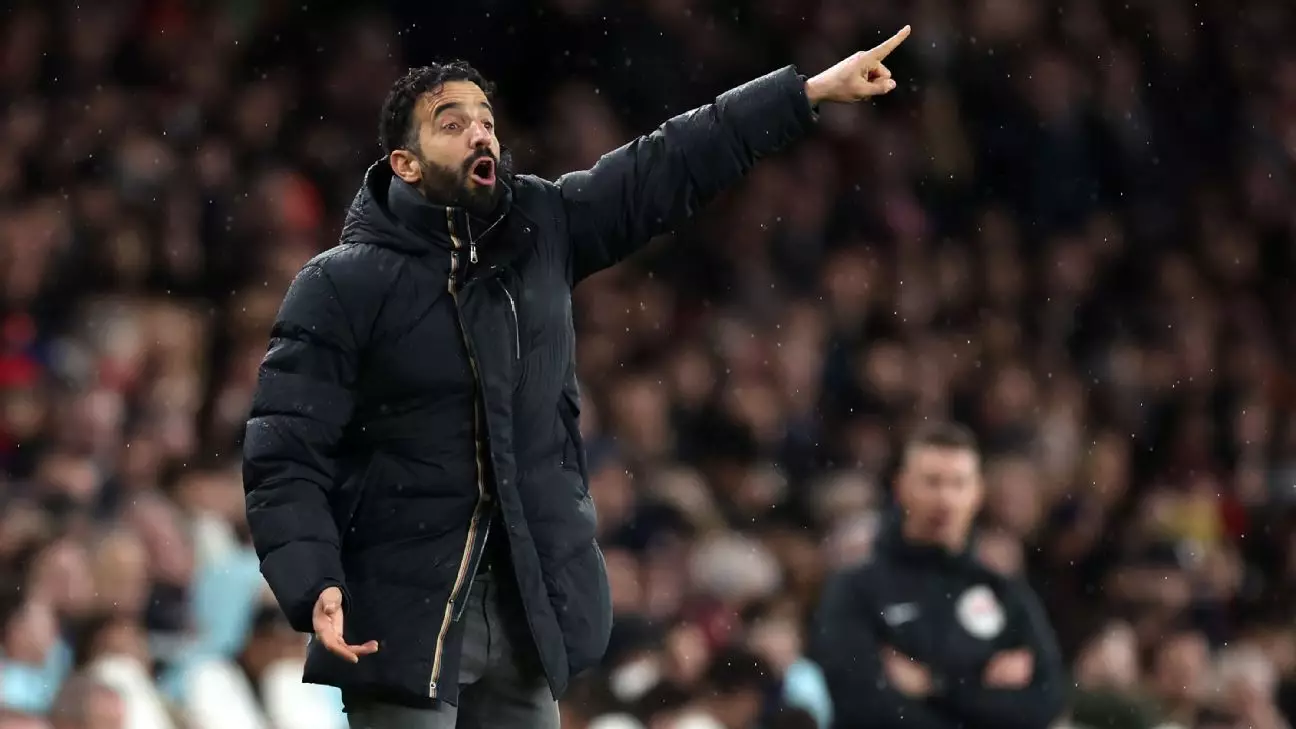Ruben Amorim has stepped into the spotlight at Manchester United, inheriting a complex legacy and a team yearning for restoration. Describing his new appointment as a “difficult position,” Amorim’s candid assessment reveals critical challenges that have plagued the club in recent years. Having amassed 20 top-flight titles, Manchester United stands as a monument in English football’s history; yet, the club’s present reality starkly contrasts its illustrious past. The once-mighty side now occupies the lower echelons of the league, a predicament Amorim must navigate with care and precision.
Amorim has made an astute observation that while Manchester United remains a “massive club,” it is not currently a “massive team.” This disassociation between the club’s grand history and its recent underperformance is more than mere rhetoric; it encapsulates the necessity for a shift in mindset among players and supporters alike. The road to redemption begins with acknowledging the difficult truth: consistency and excellence have been absent from Old Trafford since 2013. With the team struggling in the standings, six points adrift of Nottingham Forest—a team which recalled from the Championship just a season prior—Amorim’s task is monumental.
Emphasizing Effort and Tenacity
In his approach, Amorim emphasizes the need for relentless effort from his players. Ahead of a demanding schedule, he has limited time to implement exhaustive tactical changes; hence, he prioritizes shaping a work ethic that reflects a commitment to success. “Run like mad dogs” has become a rallying cry for Amorim’s squad, conveying the fundamental expectation that higher performance levels demand vigorous effort. While tactics and techniques are undeniably crucial, Amorim’s focus on effort underscores a fundamental component of competition: the willingness to fight.
The challenge for Amorim transcends traditional methods of coaching; it requires a palpable shift in mentality. He identifies the need for mental resilience as pivotal in overcoming the hurdles that currently hinder the team. It’s not simply about physical capabilities; it’s about instilling a victorious mindset. Athletes must internalize that without relentless effort—regardless of talent or skill—victory remains elusive. Amorim recognizes that the potential for greatness exists within the squad, but it demands extraordinary effort to unlock that potential.
Ruben Amorim’s statement of Manchester United’s current predicament opens the door to critical discussions within the club, as well as among its supporters. His leadership will hinge on fostering a culture centered around hard work, accountability, and a relentless pursuit of improvement. As he sets to work in redefining the team’s identity, it becomes clear that restoring pride at Manchester United is a multi-faceted endeavor—one that requires patience, commitment, and above all, an unwavering work ethic.

